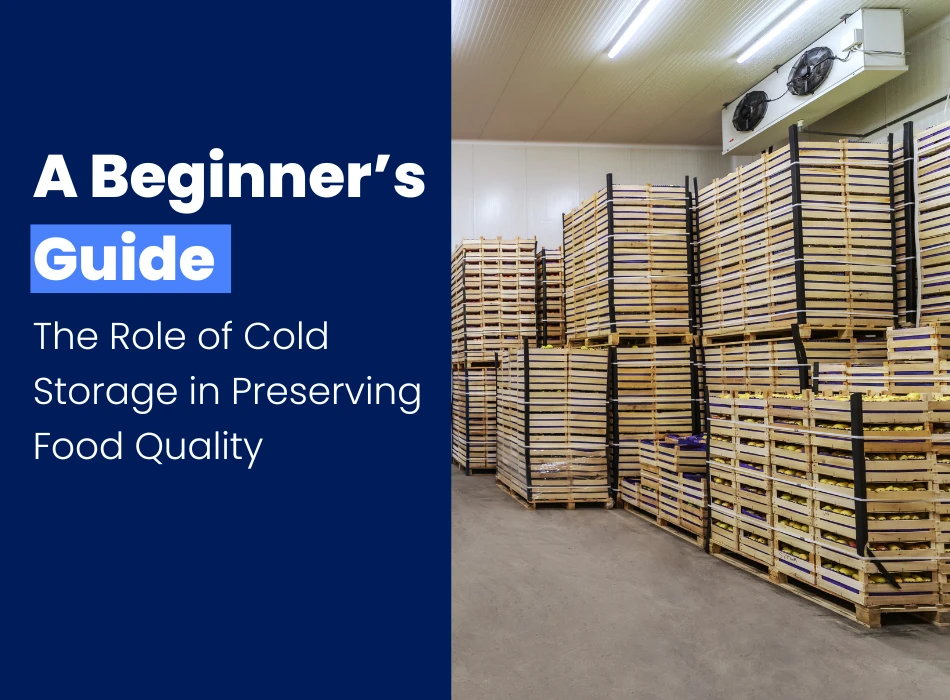The Role of Cold Storage in Preserving Food Quality: A Beginner’s Guide
Explore the essential role of cold storage in preserving food quality. Learn how temperature control slows spoilage and extends shelf life in this beginner’s guide.

Cold storage is an essential component of the food supply chain, playing a critical role in preserving the quality and safety of perishable goods. For anyone new to the concept, understanding how cold storage works and its benefits can be quite enlightening. Let’s break it down in a way that’s easy to grasp.
What is Cold Storage?
Cold storage refers to temperature-controlled environments specifically designed to keep food fresh for extended periods. This can include refrigerated warehouses, freezers, and even your home refrigerator. The primary goal is to slow down the biological and chemical processes that lead to spoilage, thereby extending the shelf life of food products.
Key Aspects of Cold Storage:
- Temperature Control: Most cold storage facilities maintain temperatures below 0°C (32°F) for freezing or between 0°C and 5°C (32°F to 41°F) for refrigeration. These low temperatures inhibit the growth of spoilage microorganisms like bacteria, yeasts, and molds.
- Humidity Management: Proper humidity levels are crucial as they prevent moisture loss in food items, which can lead to dehydration and loss of quality.
How Cold Storage Preserves Food Quality
- Slowing Microbial Growth: By keeping food at low temperatures, cold storage effectively slows down the activity of spoilage microorganisms. This means that foods can remain safe and edible for much longer than they would at room temperature.
- Reducing Chemical Reactions: Cold environments also slow down chemical reactions that can lead to spoilage. For example, enzymatic reactions that cause fruits and vegetables to ripen or decay are significantly reduced in cold storage.
- Maintaining Nutritional Value: Properly stored food retains its nutritional value better than food kept at higher temperatures. This is particularly important for fruits and vegetables, which can lose vitamins and minerals if not stored correctly.
- Extending Shelf Life: Foods like dairy products, meats, and frozen vegetables can be preserved for months when stored in optimal conditions. This not only reduces waste but also ensures that consumers have access to fresh products year-round.
Best Practices for Cold Storage
- Know Your Products: Different foods require different temperature and humidity levels for optimal preservation. For example, some fruits may not do well in cold storage due to their ripening process, while others thrive.
- Regular Monitoring: Keeping an eye on temperature and humidity levels is crucial. Many modern cold storage facilities use advanced technology for real-time monitoring, ensuring that conditions remain stable.
- Proper Packaging: Using airtight containers or vacuum sealing can help protect food from moisture loss and contamination during storage.
The Best Cold Storage Providers in India
If you’re looking for reliable cold storage solutions in India, here are some top providers known for their excellent services:
- Snowman Logistics: One of the largest cold chain solutions providers in India, Snowman offers a state-of-the-art infrastructure with a range of temperature-controlled storage solutions including deep freeze and blast freezing.
- Coldrush Logistics: Known for its extensive cold store services across India, Coldrush provides frozen, chilled, and ambient storage options with multi-capacity chambers that meet stringent standards for product handling.
- Gubba Cold Storage: With over 30 years of experience, Gubba operates multiple facilities across India, specializing in agricultural commodities, dairy products, and pharmaceuticals.
- Coldman Logistics: A leading provider offering temperature-controlled supply chain services across various industries with capabilities ranging from -20°C to +20°C.
- Indicold Logistics: Focused on high-quality cold chain solutions for frozen and chilled food industries, Indicold provides quick and dependable services through regulated partner stores across India.
These companies exemplify how cold storage providers can ensure product quality while meeting the demands of modern businesses.
Conclusion
Cold storage is a game-changer when it comes to preserving food quality. By understanding its principles and best practices, anyone—whether a home cook or a business owner—can make informed decisions about how to store perishable goods effectively. In a world where food waste is a significant concern, leveraging cold storage solutions not only helps maintain quality but also contributes to more sustainable practices in our food systems.